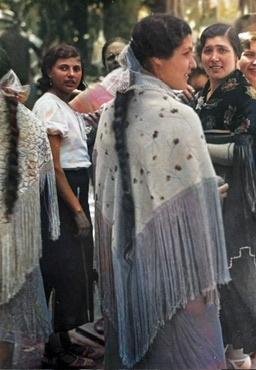How are traditional Mallorcan names being preserved amidst changing naming trends?
Similar Topics
traditional mallorcan names
mallorcan naming trends
catalan language heritage
mallorcan cultural identity
balearic islands names
mallorcan naming preservation
local cultural institutions
mallorcan naming traditions
Traditional Mallorcan names reflect the island’s rich cultural heritage, rooted in Catalan language and history. Despite the growing influence of globalization and modern naming trends, many families in Mallorca continue to select names that honor their regional identity. This preservation is partly fueled by a renewed interest in local culture and heritage, which encourages parents to choose names that are distinctly Mallorcan or Catalan, such as Biel, Margalida, or Tomeu. At the same time, these names often carry meaningful connections to the island’s history, saints, and natural landscapes, which strengthens the desire to keep them alive within families and communities.
Local government and cultural institutions also play a role in maintaining traditional Mallorcan names. The Balearic Islands preserve the Catalan language as the official language alongside Spanish, supporting the use of traditional nomenclature through educational systems and public records. This official recognition helps ensure that traditional names remain a visible and respected part of Mallorcan society. Additionally, festivals and cultural events often highlight regional customs, including naming traditions, which serves to educate newer generations about their heritage and inspire the continued use of these time-honored names.
However, naming trends are not static, and modern parents may also blend traditional Mallorcan names with contemporary influences, resulting in a vibrant mix that reflects both the island’s history and its openness to change. This fusion allows the culture to remain dynamic while respecting its roots. Overall, the preservation of traditional Mallorcan names remains a subtle but meaningful way for the island’s residents to express their unique identity and maintain a connection to their past in an increasingly diverse world.
Local government and cultural institutions also play a role in maintaining traditional Mallorcan names. The Balearic Islands preserve the Catalan language as the official language alongside Spanish, supporting the use of traditional nomenclature through educational systems and public records. This official recognition helps ensure that traditional names remain a visible and respected part of Mallorcan society. Additionally, festivals and cultural events often highlight regional customs, including naming traditions, which serves to educate newer generations about their heritage and inspire the continued use of these time-honored names.
However, naming trends are not static, and modern parents may also blend traditional Mallorcan names with contemporary influences, resulting in a vibrant mix that reflects both the island’s history and its openness to change. This fusion allows the culture to remain dynamic while respecting its roots. Overall, the preservation of traditional Mallorcan names remains a subtle but meaningful way for the island’s residents to express their unique identity and maintain a connection to their past in an increasingly diverse world.
🧩 Related Questions
Related Question
What are some traditional savory dishes from Mallorca that benefit from the addition of lemon juice?
Related Question
Can visitors with dietary restrictions participate in Mallorca’s sausage tastings?
Related Question
How does the climate and terrain of Mallorca influence the types of livestock raised on the island?
